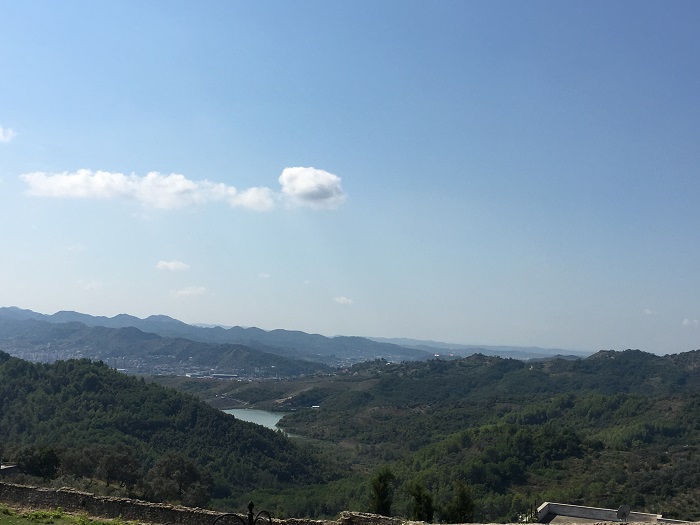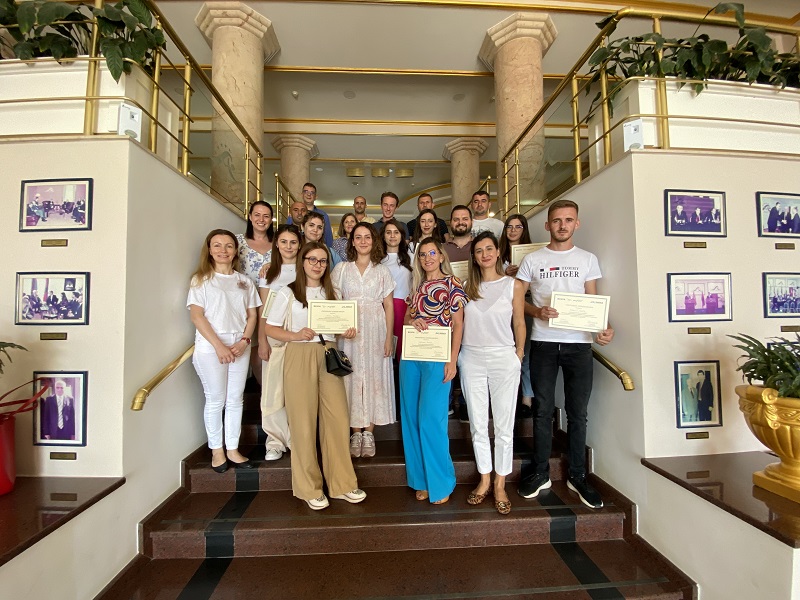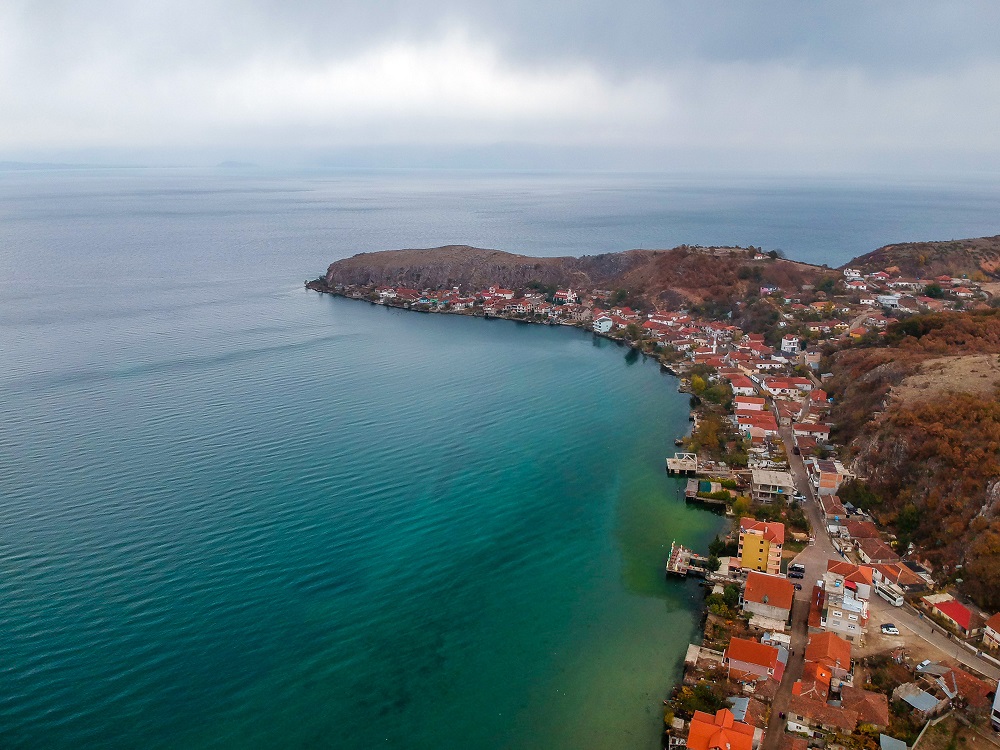The Nexus approach
The Nexus approach stems from the realization that water, energy, agriculture and natural ecosystems exhibit strong interlinkages. Under a traditional sectoral approach, each sector plans and manages the use of resources without necessarily taking into account related considerations from other sectors. The Nexus approach is essentially about moving beyond the traditional sectoral thinking and adopting an integrated and coordinated approach with a view to reconciling sectoral interests, resolving conflicts by effectively managing trade-offs, and capturing intelligent synergies, while providing opportunities for innovation and enhanced resource efficiency.
This requires a coherent approach in the design and prioritisation of policy options, management practices and infrastructure planning in order to maximise overall benefits across sectors, ensure security in terms of resources, economic prosperity and resilience to climate change impacts.
Watch a short explainer video on the Nexus Approach and the Nexus Assessment in Albania. The video has subtitles that can be activated by pressing the icon at the bottom right of the You Tube screen.
Why Albania?
Sitting at the western tip of South-Eastern Europe, Albania is a small country with great natural wealth. Rich in water resources, with 8 rivers and their respective tributaries crossing the country from one end to the other, Albania’s electricity generation has been traditionally met almost entirely by hydropower. Also taking into account the huge socio-economic role of agriculture, the Nexus approach is evidently pertinent to Albania and its adoption could greatly assist in ensuring water- energy- and food-security and healthy ecosystems in the country.
Significant advancements, especially regarding institutional settings, have taken place in recent years regarding the sustainable management of natural resources. However, non-integrated and non-coordinated policies and practices remain a substantial challenge.
The Nexus Policy Dialogue process in Albania
Aiming to capture perspectives from all sectors and ensure alignment with sectoral and national priorities, a consultation meeting was held online on 14 December 2020 engaging more than 50 stakeholders and experts from related institutions, agencies, Academia, NGOs and international organisations. The meeting facilitated discussion and sharing of sectoral perspectives and up-to-date policy-related information regarding cross-sectoral interlinkages and any barriers, conflicts or gaps for addressing them. The discussions fed into the development of the Nexus Assessment for Albania. The scope and then the preliminary findings of the Assessment were also presented and discussed during subsequent meetings of the government’s Thematic Group on Water Resources.
The final draft of the Assessment and of the “Nexus Roadmap” for Albania were discussed and validated in the 2nd consultation meeting that was held online on 17 June 2022.

The Nexus Assessment for Albania
The overall aim of the Nexus Assessment was to facilitate an enhanced understanding of the complex and dynamic relationships between water, energy, agriculture / land use, and ecosystems, and suggest steps towards improved coordination on policy and management aspects, by identifying trade-offs and synergies across the Nexus-related sectors.
The Assessment begins with a presentation of the current status, trends, key challenges and related targets regarding the Nexus sectors in Albania. It presents the institutional and decision-making frameworks and discusses gaps and barriers for coherent coordination. It also provides a brief overview of the strategic policy documents in each of the Nexus sectors, and a rapid assessment of how these address cross-sectoral considerations. Based on the above findings, the Assessment then identifies key interlinkages (both trade-offs and synergies) across Nexus sectors. A detailed mapping of the interlinkages is available in the Assessment report and presented in the accompanying Factsheet.
Finally, an Annex to the Assessment report includes a gender assessment on the Nexus sectors -and the management of natural resources overall- in Albania. Albania has made significant improvements in advancing the normative framework for gender equality in recent years and in some areas progress is evident. However, along the water-energy-food-ecosystems Nexus and with respect to climate change impacts, which disproportionately affect women and the rural poor, references to gender are lacking. The Annex built on the discussions during the Workshop on Gender Equality for Sustainable Development in Nexus Sectors in Albania that was held online on 29 June 2021. The key points of the gender Assessment are captured in this article.
Key information on the Nexus Sectors in Albania:
|
Water Resources Management |
|
|
Water Supply and Sanitation |
|
|
Energy |
|
|
Agriculture/Land |
|
|
Ecosystems/Environment |
|
Towards a “Nexus Roadmap” for Albania
Stemming from the findings of the Nexus Assessment and the Nexus Policy Dialogue, a Nexus Roadmap was prepared. It focuses on – and is structured around – Eight Objectives and suggests related lines of activities for each objective, in order to meet them. The first three Objectives are of a general nature, being common for all types of ‘Nexus issues’: (i) enhancement of knowledge and capacities, (ii) strengthening cross-sectoral cooperation, governance and coherent policy making, and (iii) enabling planning and implementation of Nexus solutions. The other five Objectives pertain to the principal objectives of each Nexus sector, recommending lines of action that address the considerations of other sectors and could capture related synergies:
- Enhancing water resources governance addressing the need of all users
- Expand and improve access to safe water and sanitation services, capturing cross-sectoral synergies
- Meeting energy and climate goals addressing the consideration of all sectors
- Improve and modernize irrigation and drainage services with cross-sectoral benefits
- Enhance the protection of biodiversity and natural areas addressing cross sectoral conflicts and pressures
Capacity building for young professionals
An innovative first of its kind workshop for Albania on Wastewater Management in the context of Circular Economy was organised on 18-19 July 2022 in the framework of the SEE Nexus Project. Targeted young professionals from water and wastewater utilities, municipalities, environmental protection agencies, were provided with a 360o view on the benefits and opportunities for synergies across sectors in the proper management of Wastewater.

During the two-day workshop, participants learned about Circular Economy's (CE) general principles and benefits as well as how the proper management of wastewater can contribute to this model of business.
Project Documents for Nexus interventions
Aiming towards more tangible outputs, the SEE Nexus Project also supported the preparation of detailed Project Documents for 2 proposals for Nexus-related interventions:
- Capturing hydropower and irrigation synergies in the water reservoir in Korca
- Promoting Precision Agriculture practices with cross-sectoral benefits in pilot locations
Albania was one of the 3 Focus Areas of activities under the “SEE Nexus Project” that was supported by the Austrian Development Agency and implemented (2017-2022) by GWP-Med in partnership with the UNECE. The Project’s other 2 Focus Areas were the Drin basin and the Drina basin, as selected by RCC’s Regional Working Group on Environment.
The Final Outputs of the SEE Nexus Project in Albania can be found on the top right hand side of the page.
For more information on related activities, see news items below:
